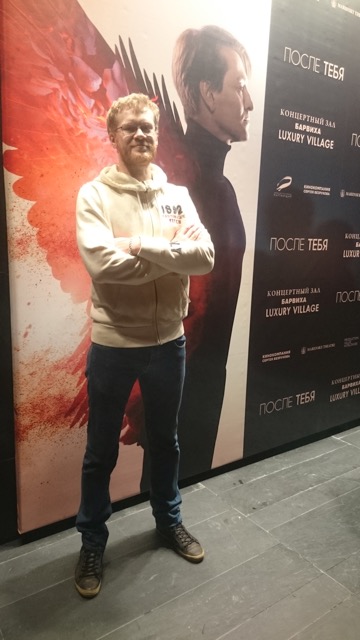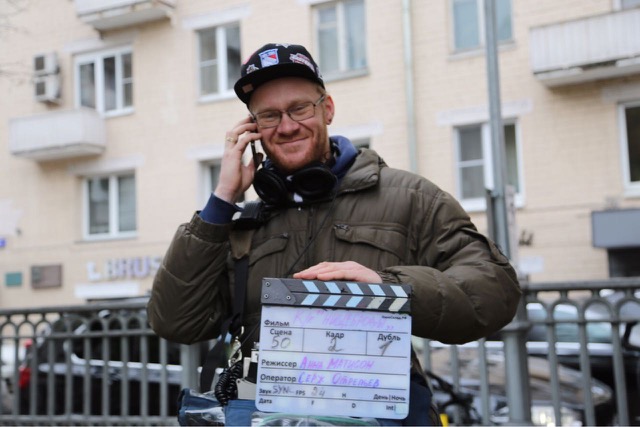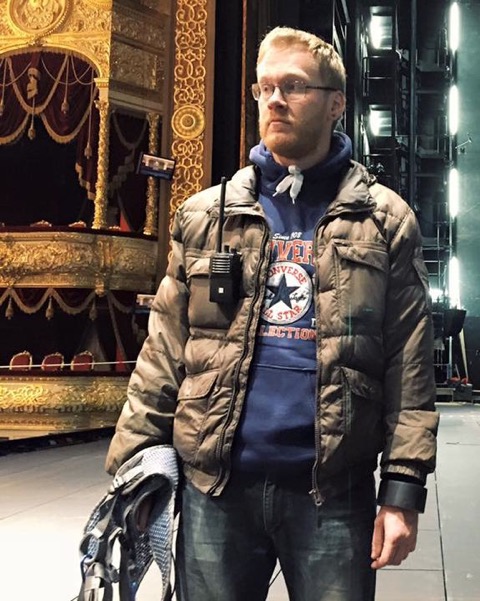
After You’re Gone is a Russian film which has been the recipient of copious praise domestically and internationally. For the general public, it’s relatable as the depiction of a person’s concern for what legacy they will leave behind when the die. The artistic community connects with the film both for this message and the masterful manner in which it is presented. Golden Eagle Award Winning Actor Sergey Bezrukov stars in the film as Alexey Temnikov, a dancer so gifted that he was compared to the iconic Mikhail Baryshnikov. Director Anna Matison presents a character both highly flawed and yet deserving of sympathy in this tale of ego versus redemption. Matison entrusted much of the audible persona of this film to production sound mixer and post-production supervising sound editor Pavel Iaroshenko. Known for his work on Golden Eagle Award–winning films Viking and Stalingrad which contain a number of large battle scenes, Mr. Iaroshenko proves equally adept in cultivating moments of tenderness and quiet tension which populate the story of After You’re Gone. Nominated for Best Film at the Tokyo International Film Festival as well as for the Grand Prize at the Sochi Open Russian Film Festival, After You’re Gone has been covered by such famed press outlets as Variety and others.

After You’re Gone is everything you’d expect and hope for in a Russian film; a famous ballet dancer is tortured by the obstacles life has thrown at him and yet aspires to make it all mean something. Alexey Temnikov was once the heir to the title of greatest Russian dancer until an injury stifled his career. Twenty years after this event, he spends his time clinging to the one piece of his art and life he can still manage, running a dance studio in his small hometown. When he suddenly finds that he has a teenage daughter from an old relationship, while at the same time discovering that he will have a baby with his girlfriend, Alexey perceives that mortality is not a vague concept and the decisions he makes will last longer than he will. Informed by his doctors that his body will begin to fail before long, Alexey decides to make professional and personal efforts that will leave some lasting imprint. Just as dance and music are inseparable, the emotional force of this film is rooted in its visual and audible components. Pavel Yaroshenko was passionate about bringing something extraordinary to this film.

What was your process for this film and how did it develop through the span of the film being created?
Pavel Iaroshenko: I always read the entire script before production starts. It’s something I think every sound mixer on a movie set should do. It makes you more valuable to the film and the director. I knew from this script that the leading character, a well-known ballet dancer, suffers due to being pulled away from what he devoted his life towards. I tried to create his nostalgia and how his pain can be shown through the world of sounds. Each person has his/her own perspective on the outer world as a reflection of the inner world. Being on set, it is important for me not to think just in terms of the technical quality of sound, but to offer “the keys to the character” and bring additional value to what is written and what is caught on camera. I make notes based on my perception of what I hear on set, of my interpretation of these sounds, and on my perspective of what could be appropriate to hear in each scene. Of course, I cannot give the recipe to each scene at once, but I can give the ideas to the director. This is how a creative duet of the director and the sound mixer works on the movie set.
Can you give some examples of how this manifests in a scene or two from this film?
Pavel Iaroshenko: In one scene, when Temnikov stands in the speeding train, he suddenly starts to dance. At first we can hear the music in his memories with him but being on set, you can find the keys to his feeling at once…if you know where to look. One of my notes was about the squeaks, the metal and wooden hits of the train in that scene. Almost every sound: the wheels, the engine, the doors, they all had an analog among the instruments in the orchestra from bass drum hits to the low glissando of the cellos to high-pitched piccolo squeaks. Such keys help to gently depict the transformation from the train to the theater stage in the mind of the character, giving the a meditative feeling to the scene. In another scene, Temnikov tells his daughter what he thinks about the majority of people; how he despises their lack of knowledge, unfounded opinions, and fear of being mocked, which stops them from creating something considerable. He speaks it out loudly in the trolley bus on his way to the Bolshoi Theater where he is going to pitch his project, which appears to be his last and his best. Speaking loudly, he tries to get rid of the shadow of his own fear and the old trolley bus responds to his strong voice with shaking and the squeaking of its rusty seats, doors, and mechanisms. In the next scene, when Temnikov is going to explain his concept to the director of the theater, some workers prepare the set for a play and right before Temnikov’s first words, we can hear in music some flashbacks of the squeaks in the trolley, implying the fear that should be beaten to do something great.
It all sounds very psychological, which is not the first thing most of us think about when considering sound. Most of us just think that professionals in your line of work are concerned with the most accurate representation of something to reinforce what is happening. How would you describe what you want to achieve in your role?
Pavel Iaroshenko: My goal is to depict characters and phenomenon through the matter of subconscious perception of sound. Visual perception is more objective than what sound can offer. Soundfield is subtle and can offer incredible depth of feelings and points of view. My role is to guide viewers, using the result of the director’s way of thinking combined with my own.
Writre: Sharon Howe


Be the first to comment on "Pavel Iaroshenko’s Perfect Sonic Pairing for After You’re Gone"